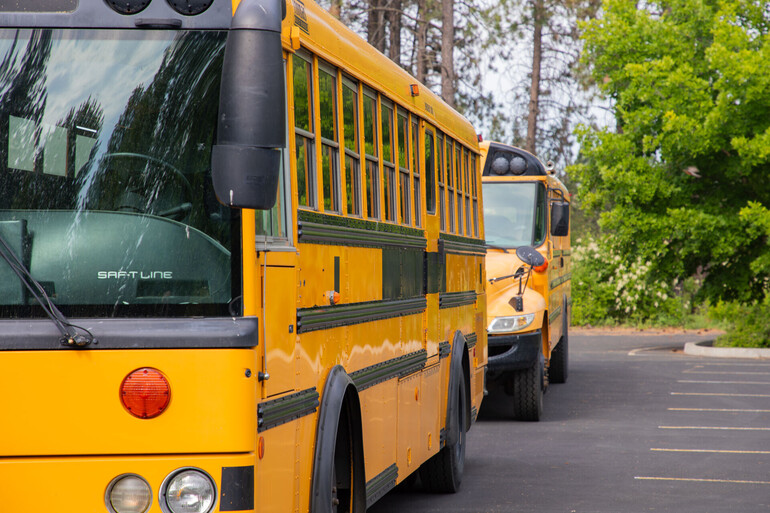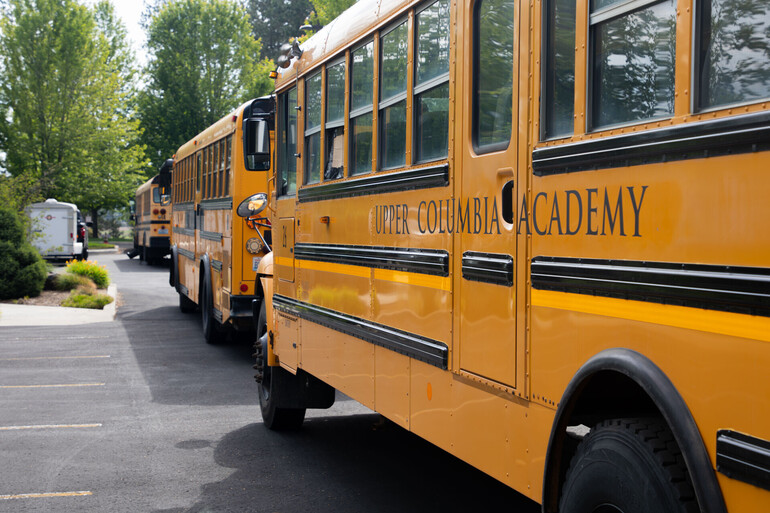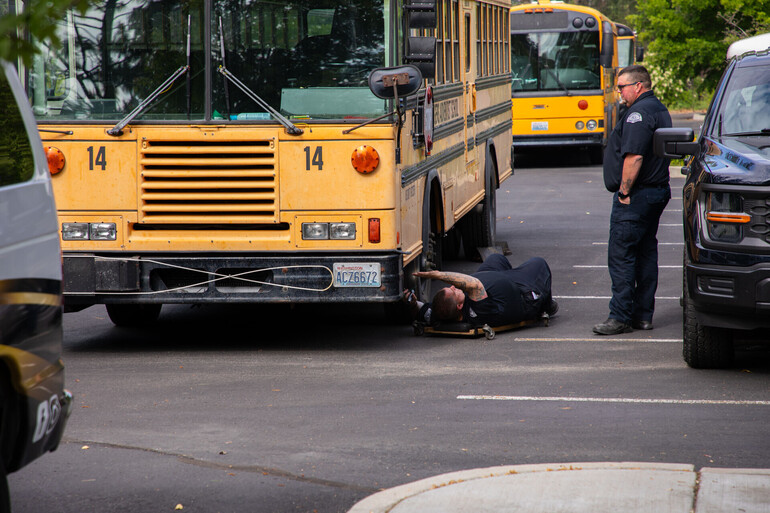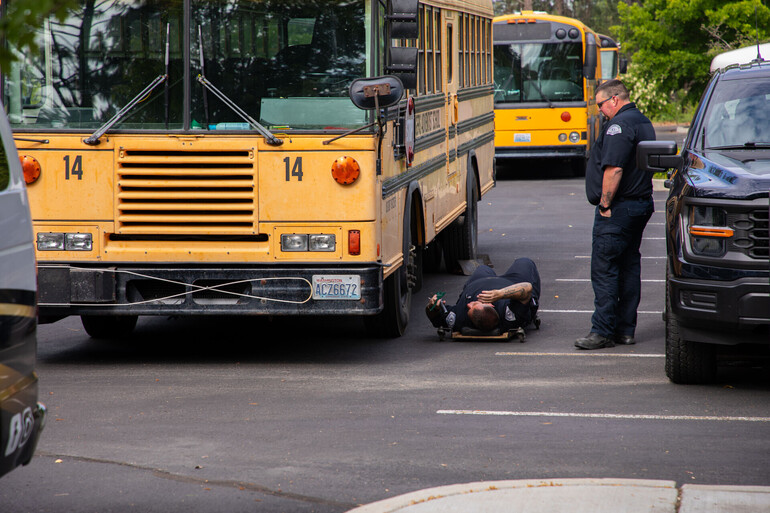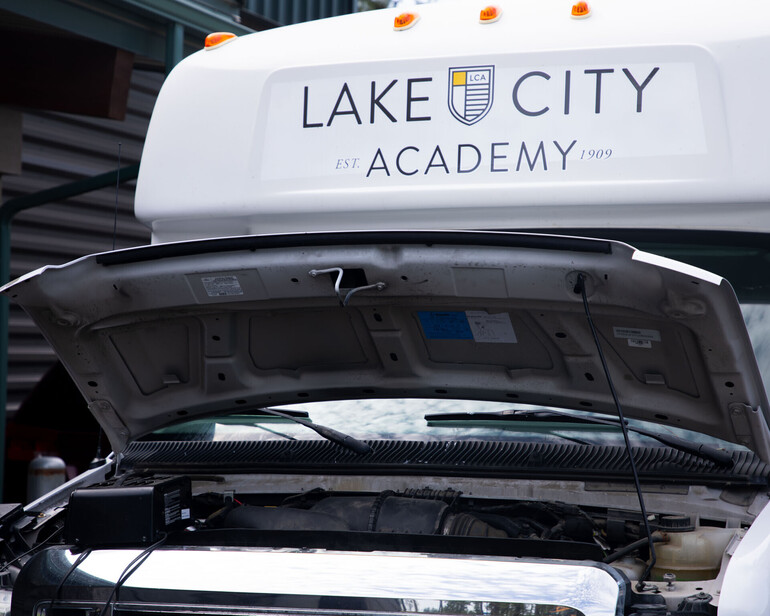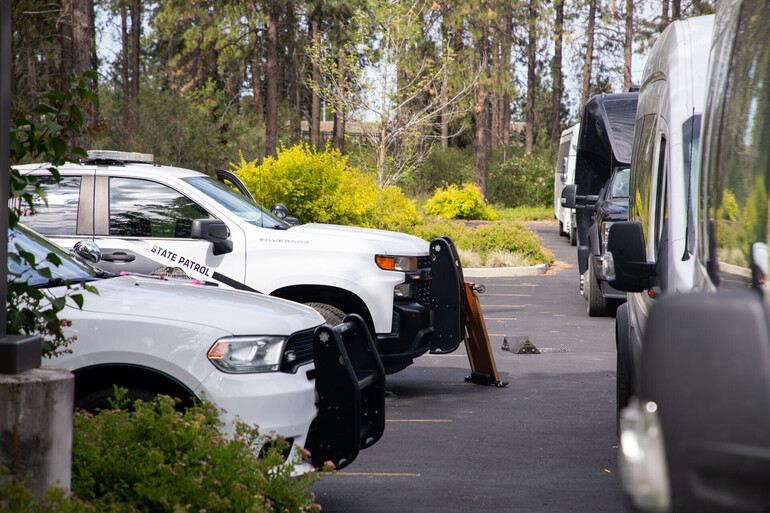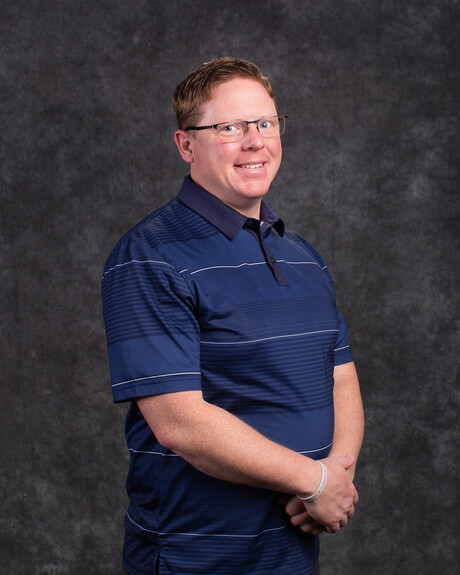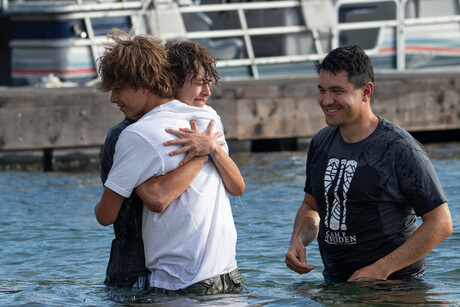Released of their typical duties, a convoy of school buses, vans, trucks and other large vehicles from across Upper Columbia Conference encircled the UCC office and Spokane ABC in June 2025.
Brent Tungesvik, UCC transportation and safety manager, coordinated with Washington State Patrol commercial vehicle enforcement officers, led by Paul Austin, commercial vehicle enforcement officer 2, to conduct an annual Level 5 safety inspection on the majority of all passenger and commercial vehicles managed by UCC.
These intense inspections took two days to complete. Each vehicle was thoroughly inspected inside, outside and underneath for proper maintenance and safety. As part of the inspection, officers also reviewed records to ensure commercial driver certification compliance.
“We take safety at UCC very seriously, especially when it comes to the more vulnerable in our community, such as children and the elderly,” said Tungesvik.
All commercial vehicle drivers within UCC are vetted ahead of time, receive full and complete training for the vehicles they will be driving and hold a current commercial driver's license.
“We are proud to report that all but two vehicles passed the inspection and received 2025 CVSA certification,” said Tungesvik. “The two vehicles that did not pass inspection will only need minor service repairs to be fully certified.”
The transportation department manages buses, passenger vans, class A tractor trailers and other large vehicles needed to serve ministries throughout the conference, including Adventist schools and food banks. The transportation department also provides logistics and moving services nationwide.
Adventist Risk Management, which provides safety education, guidelines and insurance policies for Adventist ministries around the world, released new guidelines in 2025 for 15-passenger vans. UCC has ensured that all UCC vehicles comply with the new guidelines.
Tungesvik recommends that safety become something that all members think about. “Prevention and planning are our front-line defenses to ensure safety,” he said. “That doesn’t mean being afraid of everything, just making it a habit to think about safety and be prepared in cases of emergency.”




